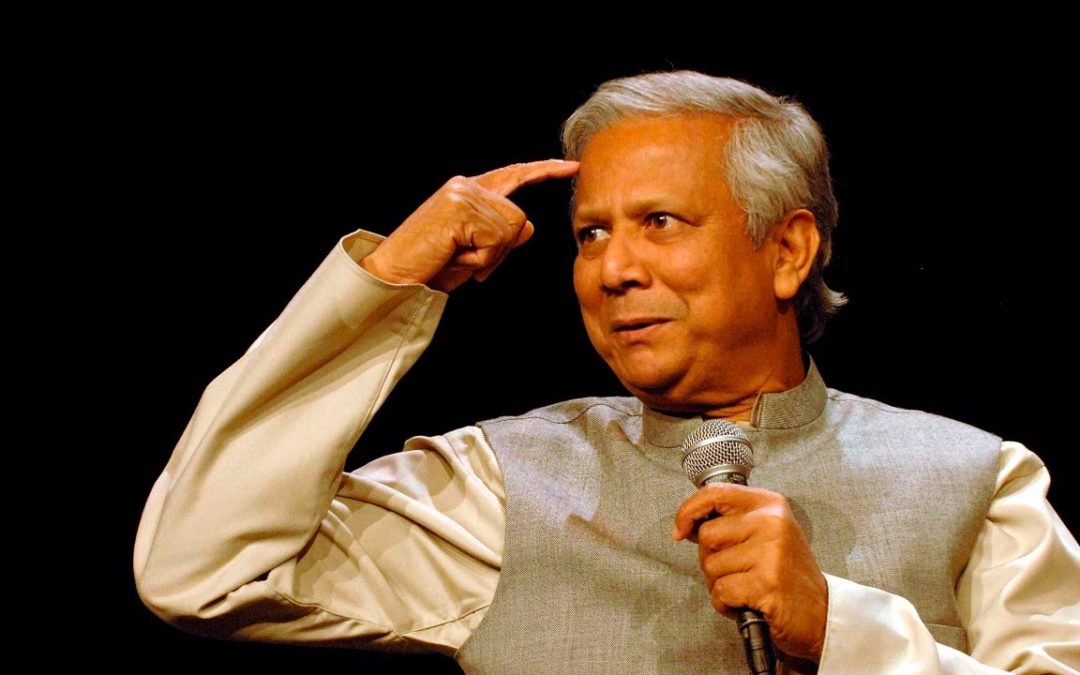Nobel laureate Yunus, father of microfinance, faces more legal hurdles
The Supreme Court of Bangladesh has ordered Yunus to pay US$ 1 million in unpaid taxes from funds he donated to some trusts. In the coming months, he will be in court to answer questions about alleged labour law violations by Grameen Telecom, a company he chairs. A Janus figure, the social banker has been praised for his contribution to development, but also criticised by many Bangladeshis for the inflexibility of his bank vis-à-vis vulnerable borrowers.
Dhaka (AsiaNews/Agencies) – The Supreme Court of Bangladesh has ordered economist Muhammad Yunus, known as the founder of microfinance, to pay US$ 1 million in back taxes on a donation of US$ 7 million.
Praised for his work eradicating extreme poverty in some parts of Bangladesh, the 2006 Nobel Peace Prize laureate has become a divisive figure in his country, taken to court in recent months over alleged violations of labour laws.
While some, especially abroad, see him as the "banker of the poor", Bangladesh’s Prime Minister Sheikh Hasina has publicly chastised him, going so far of accusing him of “sucking blood” from the poor.
“The Supreme Court dismissed our petition," said Sarder Jinnat Ali, a lawyer who represents the 83-year-old economist and social banker.
Bangladesh’s highest court in fact upheld a lower court ruling ordering Yunus to pay 150 million taka after he donated 767 million takas to three charitable trusts, the Professor Muhammad Yunus Trust, the Yunus Family Trust, and the Yunus Centre between 2011 and 2014.
The microcredit scheme developed by Yunus in the 1980s is based on a format of small loans to enterprising individuals who would not otherwise qualify for credit from traditional banks.
With this idea in mind, he set up the Grameen Bank; however, Christian missionaries had already preceded him by creating credit unions providing similar financial services back in the 1920s.
Ver several decades, PIME missionary Fr Giulio Berutti, who died from COVID-19 in 2021, developed and managed several cooperatives of this type in the Diocese of Dinajpur.
“The purpose of traditional banks is profit; ours is to help the poor, especially women, by encouraging them to become productive with their work. The Grameen Bank initiative follows the example of Christian missions, both Catholic and Protestant,” he told Mondo e Missione a few years ago.
"Yunus set up a real bank, but in Bangladesh he is criticised for excessive inflexibility towards those unable to repay their loans, thus plunging into despair the less capable and the more short-sighted of the poor,” the clergyman added.
In addition to tax issues, Yunus is facing a number of court cases for violating labour laws as chairman of the Grameen Telecom company; the latter has been accused of not regularising staff, failing to grant earned leave, and not distributing a 5 per cent share of profits to employees.
Yunus is co-accused with the company's former managing director, Ashraful Hasan, directors Nurjahan Begum, and current managing director Mohammed Shahjahan.
The trial followed an inspection by the Department of Inspection for Factories and Establishments (DIFE) and several postponements.
This is not the first time that Yunus' activities have come under fire from the Bangladesh government.
The country’s anti-fraud agencies ordered extensive probes into his companies after Prime Minister Sheikh Hasina blamed the economist for the World Bank pulling out from a project to build a bridge near the capital Dhaka following allegations of corruption.
In June of last year, after the bridge was inaugured, Hasina said that Yunus should be "dipped into the river".







.png)










